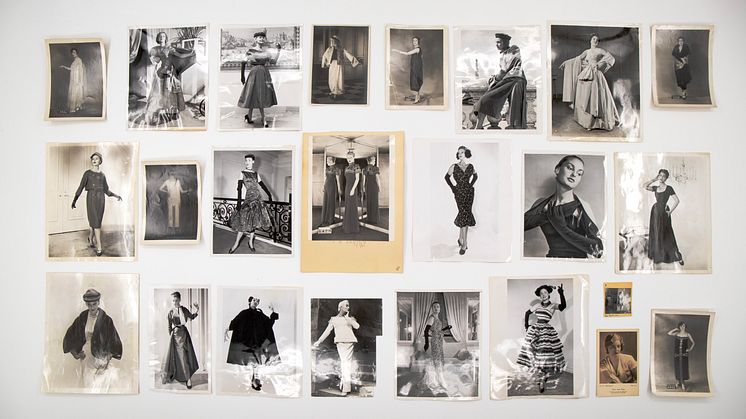
Press release -
Discover another facet of fashion
The exhibition “Ephemeral Matters. Into the Fashion Archive” takes an unusual and surprising route through the history of fashion
“Ephemeral Matters. Into the Fashion Archive”
The National Museum, Prints and Drawings Gallery (2nd floor)
19 October 2024 – 23 March 2025
From spectacular invitations to rare lookbooks the exhibition “Ephemeral Matters. Into the Fashion Archive” showcases ephemera from six different public and private collections, from France, USA and Norway. You will discover a broad array of unique catalogues, invitations, invoices, and illustrations dating from the 18th century to the present. The exhibition also contains a selection of objects and documents from the National Museum’s internal documentation archive. Much of the material have never been shown before.
“The installation evokes the space of the archive and invites visitors to actively explore the different collections of ephemera and the overlooked value and unique role of this material in and outside the fashion industry”, says guest curator Marco Pecorari.
“With its manifold selection of materials, this exhibition provides new perspectives on fashion”, says curator Hanne Eide.
Ephemera
The term ephemera was originally adopted by scientists to describe a fever and then a category of mayfly in the Ephemeroptera order. During the 16th and 17th centuries, the term became associated with the increased production and consumption of ‘less lasting’ objects typical of Western consumer culture, as depicted in vanitas paintings. In the late 19th century, the term was adopted by collectors and amateurs to refer to printed artefacts that were not intended to survive beyond their initial purpose. “Ephemeral Matters. Into the Fashion Archive” explores how all these meanings resonated in today’s fashion ephemera.
In the exhibition you can open drawers and immerse yourself in more than 500 such documents and objects from fashion houses such as Dior, Balenciaga, and Hermès, and designers such as Jean Charles de Castelbajac, Yohji Yamamoto and Martin Margiela.
Fashion archive
The exhibition is based on exclusive loans from Palais Galliera, musée de la Mode de Paris, Paris Musées, Diktats, RareBooksParis, Queer Zine Archive Project, International Library of Fashion Research (ILFR) and The National Museum’s library and archive. The exhibition has been developed in collaboration with guest curator Marco Pecorari and builds on Pecorari’s research into fashion archives and his book “Fashion Remains: Rethinking Ephemera in the Archive” (Bloomsbury 2021)
Collections
Palais Galliera, musée de la Mode de Paris, Paris Musées, is a fashion museum whose collection encompasses around 200,000 items, including garments, photographs, drawings and archival material.
Diktats is a bookshop founded by the collectors and historians Antoine Bucher and Nicolas Montagne. They specialise in rare printed matter from the 18th to the mid-20th century.
RareBooksParis, founded by Gregory Brooks, is an online bookstore that collects and sells rare books and printed matter.
Queer Zine Archive Project is a non-profit organisation created in 2003 by the LGBTQ+ activist, graphic designer, and archivist Milo Miller, together with historian Christopher Wilde.
International Library of Fashion Research (ILFR), founded by Elise By Olsen in 2020, is housed in the National Museum and preserves a fashion ephemera collection of around 15 000 publications and print materials.
The National Museum’s research library and documentation archive holds a collection of ephemera relating to the history of the Norwegian fashion sector.
Topics
Categories
The National Museum of Art, Architecture and Design is the largest art museum in the Nordics. The collection contains 400,000 objects ranging from the antiquity to the present day and includes paintings, sculpture, drawings, textiles, furniture and architectural models. The new museum building opened in June 2022. At the National Museum visitors can experience a comprehensive Collection presentation of around 6,500 works, as well as a varied programme of temporary exhibitions and events.






























